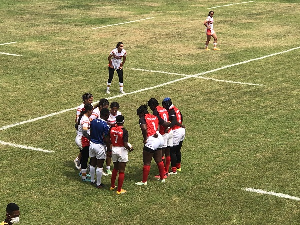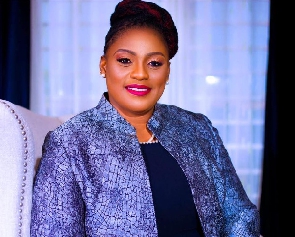General News of Monday, 14 September 2009
Source: GNA
Cabinet approves funds to address gender inequality
Accra, Sept. 14, GNA - Ms. Akua Sena Dansua, Minister of Women and Children's Affairs (MOWAC) on Monday said Cabinet had directed Ministries, Departments and Agencies (MDAs), Metropolitan, Municipal and District Assemblies (MMDAs) to design and implement gender sensitive budgets from next year
She said in addition, the institutions would be required to obtain gender certificates from Gender Responsive Budgeting Monitoring Units to be established by MOWAC before they could access their budgets. Ms. Dansua who was speaking at the opening of an International Conference on Gender in Accra said the MDAs and MMDAs are set aside funds to address gender inequality in their sectors from next year. The three-day conference under the theme: "Feminization of Poverty: A Gender Challenge", would discuss issues that combine to render women more vulnerable to poverty.
It is being attended by personnel from MDAs, Civil Society Organisations (CSOs) and Non-Governmental Organisations involved in gender advocacy and programmes.
Ms. Dansua stressed that the programme was a 'monumental step taken by government' towards gender mainstreaming, equality and women empowerment to help reduce feminization of poverty and ensure accelerated development.
She said gender equality was both a goal in itself and pre-requisite for reaching the Millennium Development Goals (MDGs). This is because empowering women bring new ideas and perspectives to decision making and increase the chances of education and employment for successive generations.
Ms. Dansua said when women had access to credit, technology and markets they were likely to expand their businesses and contribute effectively to economic growth and development.
"Therefore investing in women and mobilizing them to participate in the socio-economic development of our nation is not only the right thing to do, it is really the smart thing to do," she said. She noted that there could be no sustainable development if women and girls were left behind adding that all aspects of development should recognize women's economic contributions and support their economic rights and integration.
Mrs. Afua Ansre, National Programme Co-ordinator, UNIFEM, Ghana said though women performed 66 per cent of the world's work and produced 50 per cent of global food, they earned only 10 per cent of incomes and own one per cent of property.
She said despite growing awareness on human rights and social enlightenment, women were still victims of various forms of violence and discrimination including low levels of education, poor health, inability to inherit in patrilineal societies.
Mrs Ansre said the current global economic crisis had brought up more challenges for women because women still had to look after their families even when they lost their livelihoods.
"We only imagine what the loss of jobs meant for women and their families especially if there were single, pregnant and ill," she added. Mrs. Ansre appealed to government to pay attention to gender mainstreaming and gender responsive budgeting to ensure that women's concern were taken care of in the national development efforts. She called for partnership between government and CSOs to eradicate the phenomenon of feminized poverty because these gender inequalities and abuse of human rights impeded accelerated development.
















